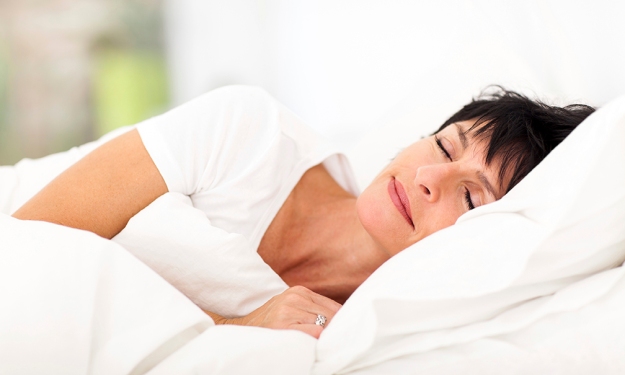One of the greatest things in life – waking up refreshed after a wonderful night of sleep. It’s one of life’s greatest luxuries.
What isn’t so wonderful – lying in that same bed when you’re trying to fall asleep, but can’t. Maybe it’s your overbooked schedule that’s on your mind. Maybe you’re one of the 70 million Americans who experience a problem with getting a good night’s sleep. You could be experiencing sleep apnea which causes you to wake up throughout the night due to your airway being restricted
But sleep is more than just a luxury. A good night’s rest is vital for your health and wellness. Most adults need at least 7 hours of sleep per night to help their body and mind rejuvenate. Those who lack adequate sleep are more susceptible to disease and weight gain.
Wondering what you can do to safely drift off to dream land and stay there throughout the night? Learn how to sleep better with these 5 tips:
Work out – According to a 2013 poll by the National Sleep Foundation, people who work out reported that they had better sleep than those who don’t work out. Actually, even those who only lightly exercise still are 43% more likely to enjoy a good night’s rest than those who were sedentary.
Smell some lavender – In a recent study by Wesleyan University, women who sniffed lavender before bed reported that they experienced 22% more peaceful sleep. Lavender has long been lauded for helping people fall asleep, and decreasing heart rate and blood pressure.
Think before you eat – People who experience moderate to severe sleep apnea, then switched to a Mediterranean diet – high in fruits, vegetables, whole grains and fish – and walked 30 minutes per day for 6 months, experienced nearly 20 fewer episodes of obstructed breathing per hour of REM sleep. Another study found that people who ate meals high on the glycemic index – like rice, potatoes and pasta that help the body release sleep-inducing tryptophan – fell asleep 49% faster than people who didn’t eat those foods.
Prescription use – Most people know that caffeine or other stimulants before bed are frequent causes of insomnia. But it’s not such common knowledge that certain prescriptions – such as antidepressants – can raise serotonin and norepinephrine. Both decrease your chances of getting quality sleep. If you’ve recently started taking a new medication and it’s affecting your sleep, contact your physician.
Pick a side – According to the Better Sleep Council, those who sleep on their stomachs often experience less quality sleep. However, research in the Journal of Clinical Sleep Medicine found that people who spend 20 to 80% of the night sleeping on their backs could experience 4 fewer events of obstructed sleeping by rolling on to their side.
There are countless reasons for experiencing poor quality sleep, but if it’s affecting you, visit The Better Sleep Council to help you get your best night’s rest possible.
Sources
http://www.cdc.gov/features/dssleep/
http://healthysleep.med.harvard.edu/healthy/matters/consequences
Related Article

Join the Discussion
0 Comments